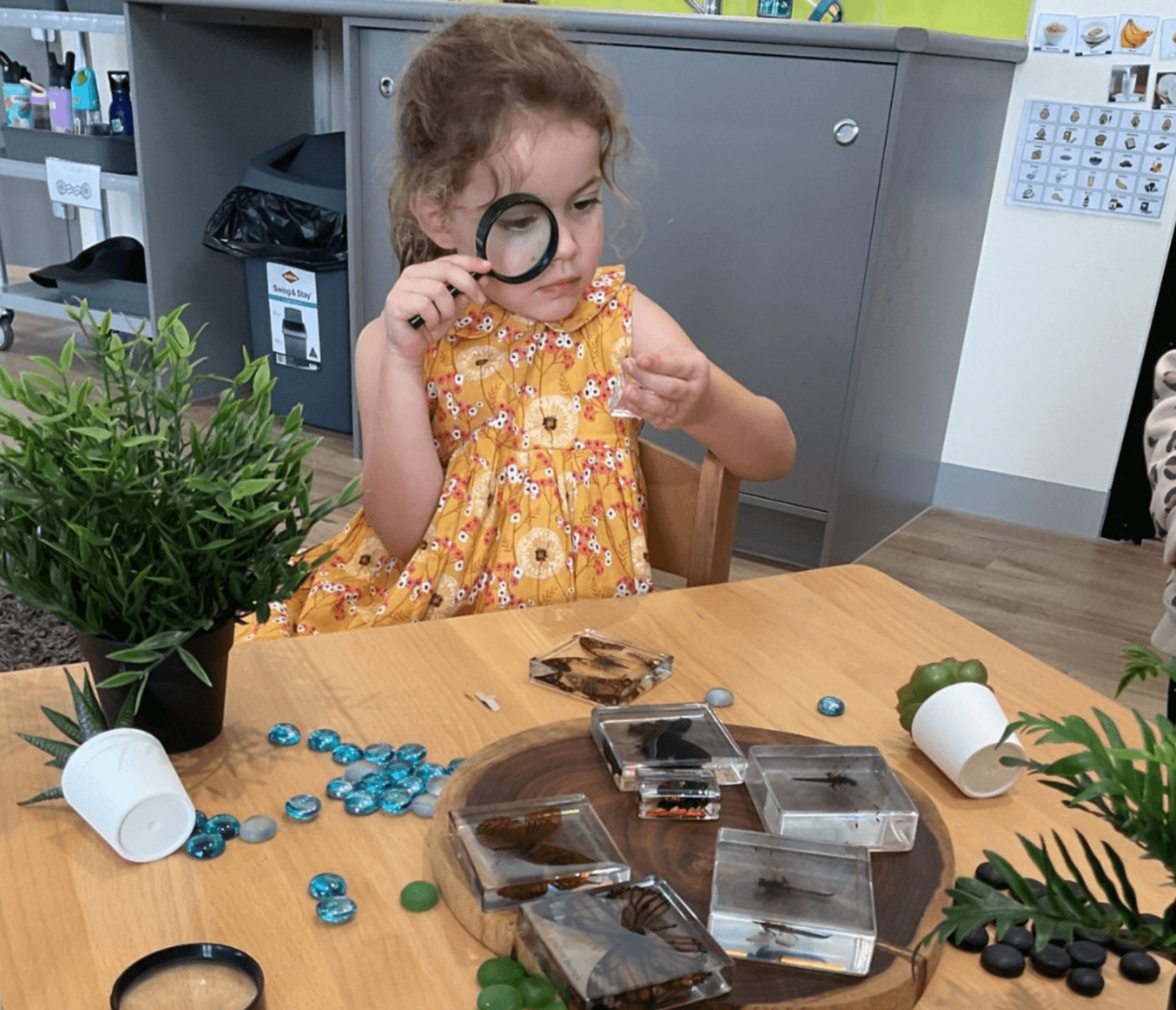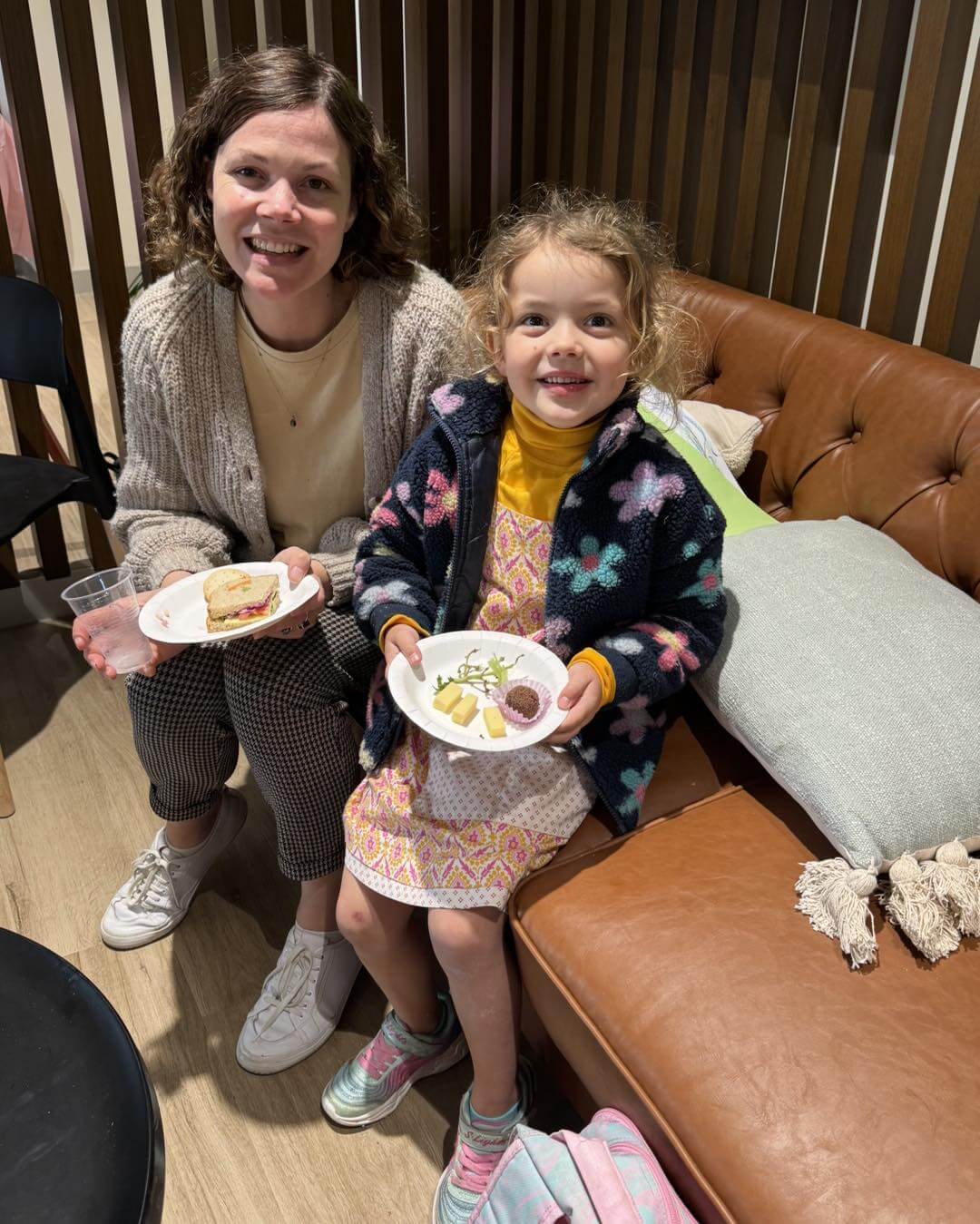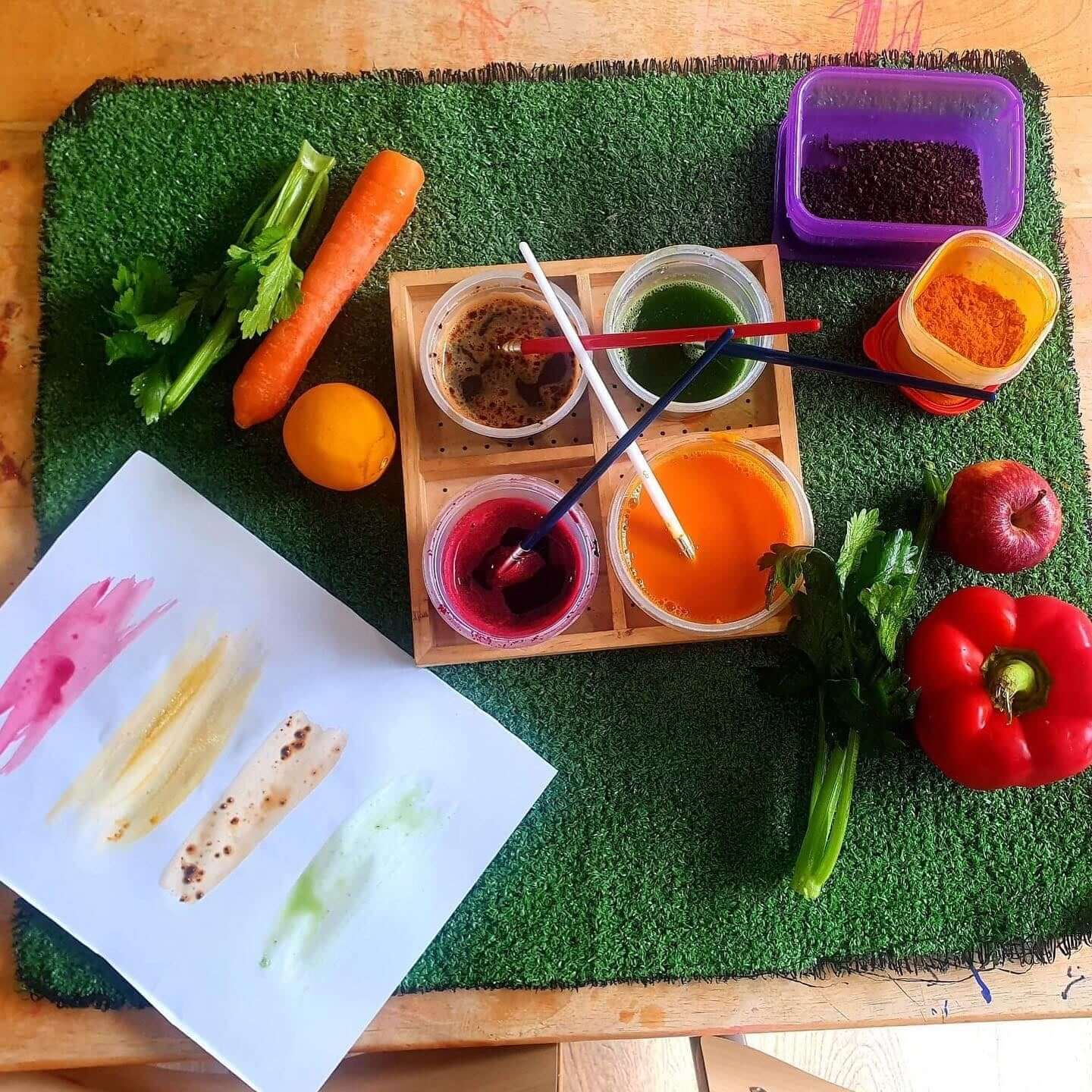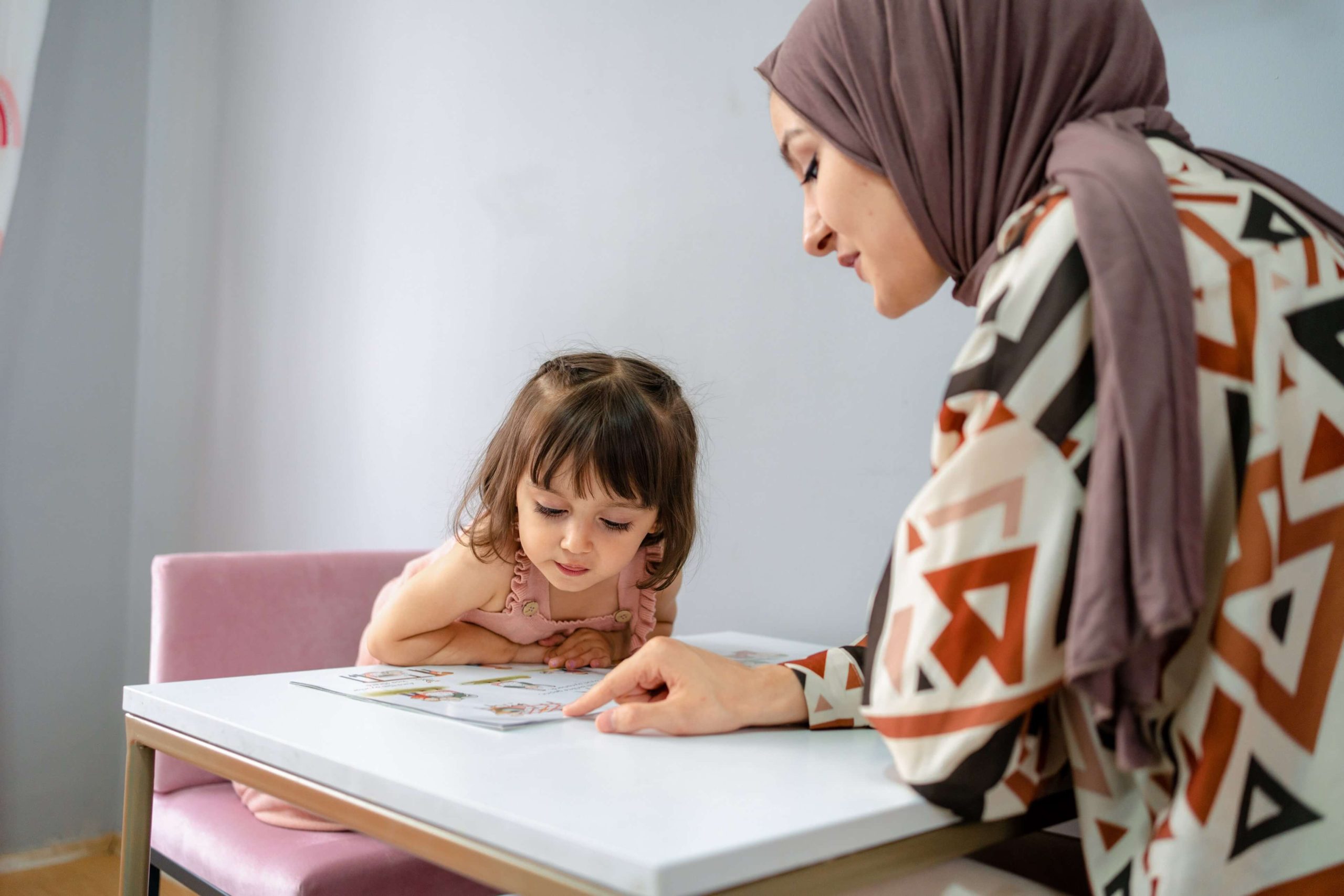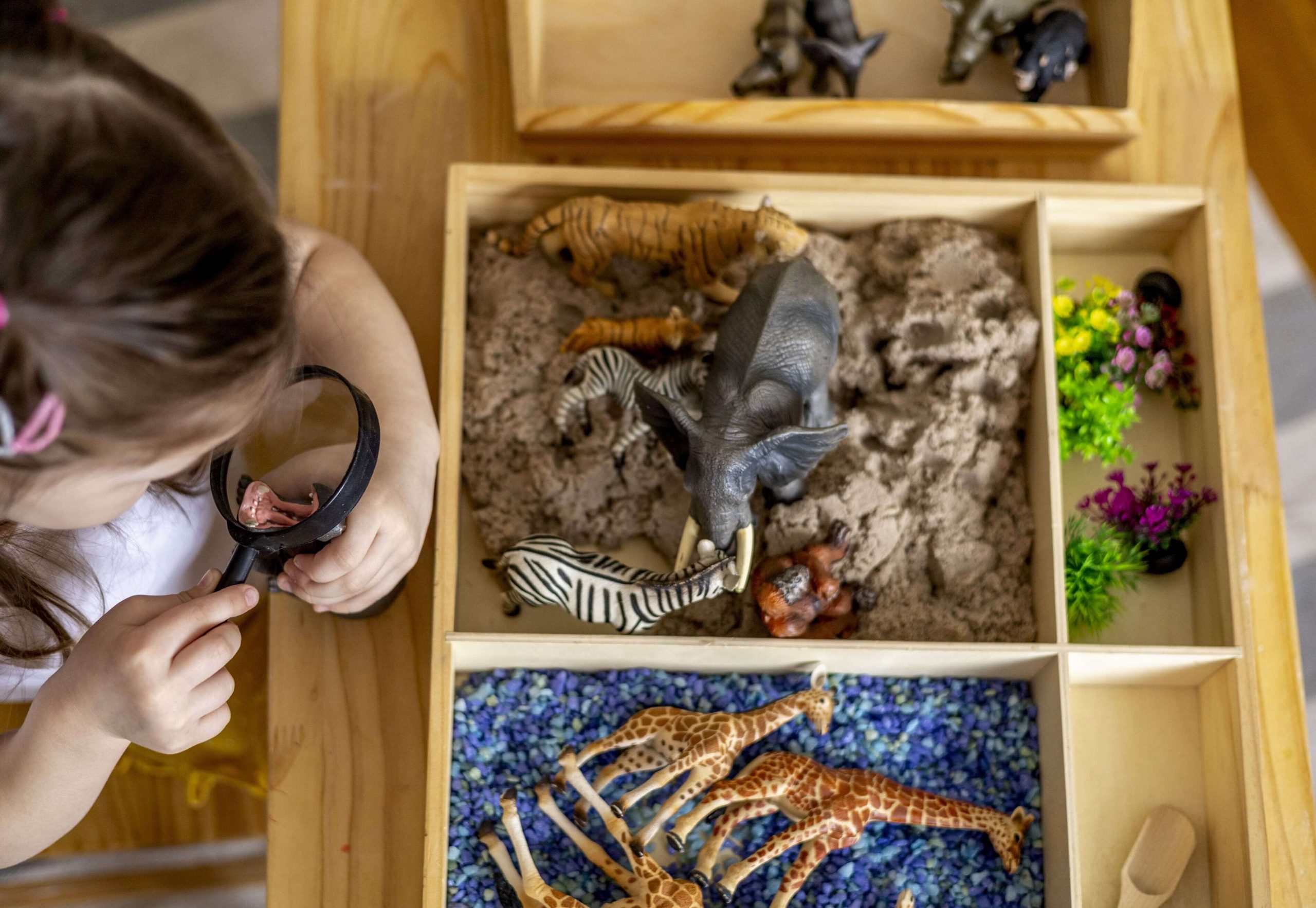Play-based learning is a cornerstone of early childhood education, offering children a natural way to develop essential skills through engaging, hands-on activities. This approach harnesses a child’s curiosity to foster growth, making it a vital part of any early learning curriculum in 2025. This blog explores the impact of play-based learning on young children, highlighting its role in development and its relevance for parents considering how to choose a childcare centre or preparing for their child’s first day at childcare.
Understanding Play-Based Learning
Play-based learning involves children learning through guided activities such as building, pretending, or exploring. Unlike traditional academic methods, it allows children to direct their learning, with educators facilitating experiences that align with developmental milestones. In 2025, play-based learning often incorporates STEAM in early learning (Science, Technology, Engineering, Arts, Mathematics), enabling children to explore concepts in a fun, meaningful way. This approach supports school readiness in early learning by building skills through activities that feel like play, not work.
This method taps into a child’s innate desire to discover, adapting to the needs of infants through preschoolers. High-quality programs typically feature low educator-child ratios to ensure personalised guidance, and many are accessible through initiatives like the Child Care Subsidy (CCS) or Free Kinder programs.
How Play-Based Learning Drives Development
Play-based learning nurtures multiple areas of a child’s growth, creating a well-rounded foundation. The following outlines its impact:
1. Cognitive Development Through Exploration
Activities like puzzles, sorting games, or stacking blocks encourage problem-solving and critical thinking. For instance, building a tower introduces early math concepts like balance and spatial awareness, aligning with STEAM in early learning. These experiences help children test ideas, learn from trial and error, and develop reasoning skills crucial for school readiness in early learning.
2. Social Growth Through Interaction
Group play, such as role-playing in a pretend kitchen or playing cooperative games, teaches children to share, communicate, and collaborate. These interactions foster empathy and social confidence, enabling kids to form friendships and navigate group dynamics. Such skills ease the transition for a child’s first day at childcare.
3. Emotional Resilience Through Expression
Play provides a safe space for children to process emotions. Activities like painting, storytelling, or dramatic play allow kids to express joy, frustration, or curiosity. This emotional outlet supports self-regulation and resilience, equipping children to handle challenges in early learning settings.
4. Physical Skills Through Movement
Active play, such as climbing, running, or threading beads, strengthens fine and gross motor skills. Outdoor activities enhance coordination, while crafts like drawing improve dexterity. These physical abilities support tasks like writing, preparing children for school while keeping learning engaging.
Benefits of Play-Based Learning
Play-based learning offers numerous advantages:
- Creativity: Open-ended play, like inventing a story or building a structure, sparks imagination.
- Confidence: Mastering challenges, such as completing a puzzle, boosts self-esteem.
- Social Bonds: Collaborative play encourages teamwork and connection.
- Lifelong Curiosity: Play makes learning enjoyable, fostering a love for discovery.
In 2025, these benefits align with educational goals, integrating STEAM in early learning to prepare children for a dynamic world.
The Relevance of Play-Based Learning in 2025
Unlike rigid, academic-focused approaches, play-based learning is flexible, meeting children where they are developmentally. It supports diverse learners, from toddlers exploring sensory play to preschoolers tackling STEAM challenges. Children in play-based programs often show strong social and cognitive outcomes, as they develop a genuine enthusiasm for learning.
For parents exploring how to choose a childcare centre, programs with low educator-child ratios ensure educators can tailor play experiences to each child. The Child Care Subsidy (CCS) and Free Kinder programs make quality play-based settings more accessible, allowing families to prioritize this approach.
Supporting Play-Based Learning at Home
Parents can reinforce play-based learning with simple activities:
- Create Play Spaces: Offer blocks, art supplies, or dress-up clothes for open-ended fun.
- Explore Together: Ask “What can we build?” to spark creativity during play.
- Go Outside: Dig, run, or collect leaves to inspire curiosity and movement.
- Celebrate the Process: Praise effort, like trying a new game, to build confidence.
These practices complement a play-based early learning curriculum, supporting a child’s growth at home.
Embracing Play for a Bright Future
In 2025, play-based learning remains a powerful tool for early childhood development, blending joy with growth. By fostering cognitive, social, emotional, and physical skills, it prepares children for school and nurtures a lifelong love for learning. As parents consider early education options, prioritizing play-based approaches can unlock a child’s full potential.
